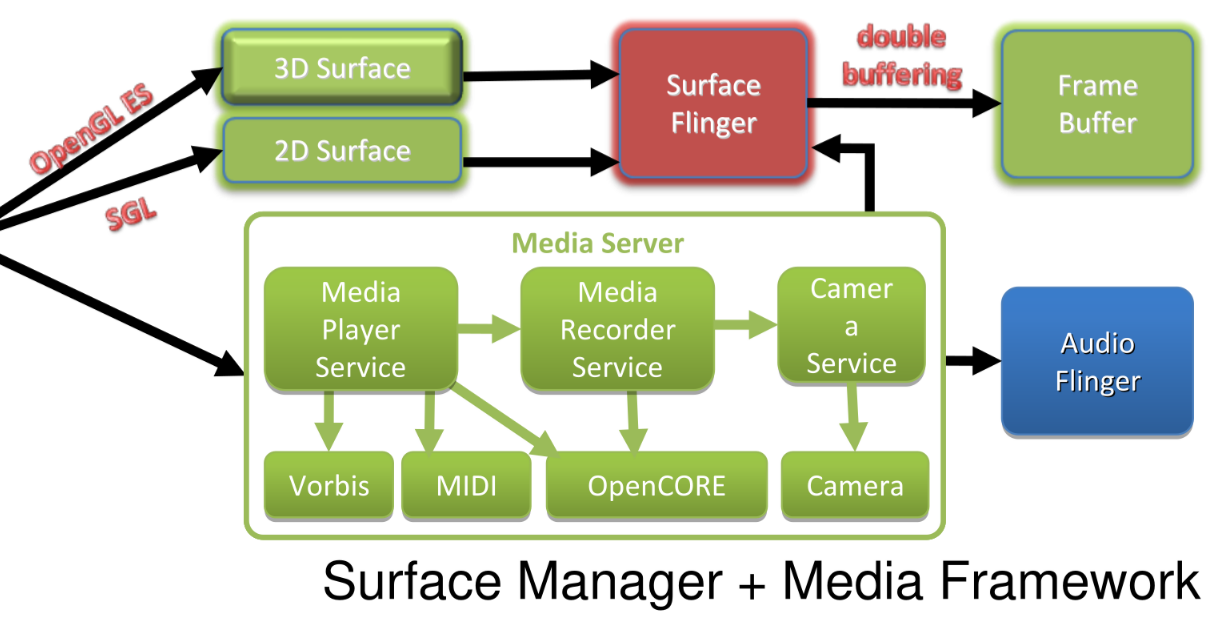ANDROID PLATFORM
Android is a complex platform that offers developers with a mobile middleware that handles common mobile problems, it’s composed by 4 layers,
- linux kernel a stripped and modified version of the linux kernel
- system level libraries C++ libraries to interact with hardware components, modified version of the jvm (dalvik virtual machine)
- application framework java SDK’s for interact with the under level components
- applications
In the android platform applications must follow the threading model offered by the platform and must be written in JAVA android compatible
ANDROID IS LINUX? YES TO SOME EXTENT
The kernel part is based on the linux kernel with some additions and some things that got removed
| KERNEL EXTENSIONS | DESCRIPTION |
|---|---|
| ASHMEM shared memory manager | Support for share memory for process communication |
| IPC binder | faster inter process communication support based on ASHMEM |
| ADVANCED POWER MANAGEMENT | application callable api for managing power consumption |
Feature removed from the linux system are
- support for Glibc
- window manager support
- no linux utilities
so for this android is not a fully compatible linux extension
POWER MANAGEMENT WITH WAKELOCKS
applications can through the wakelocks java API can influence the behavior of the kernel power management ( this is an example of cross layering pattern )
NOT ALL THE SYSTEM IS JAVA BASED
Some performance critical components are implemented in C/C++ to improve performance for example the multimedia stack

DALVIK VIRTUAL MACHINE
Implemented in a registry-based model (in order to exploit the ARM architecture of smartphones ), it also run different bytecode of the JAVA standard in order to improve performance (called .dex also instructions are reduced by 30% )
ANDROID SDK MAIN COMPONENT
Android offers to developers some main concept to interact with the android runtime
| COMPONENT | DESCRIPTION |
|---|---|
| ACTIVITY | Main application component that represent an interaction with the user |
| INTENT | Request to perform an operation to the android framework (as sharing content) |
| SERVICE | codes that runs in the background with no interaction with the user (no dedicated process/thread) |
| BROADCAST RECIEVER | Application component that handle broadcast messages |
Other components are available
- Activity manager to handle activity lifecicle and application management
- package manager to handle application management
- Window Manager & View System: handle windows on the screen
- Resource Manager & Content Provider: handle system resource and data access to them (e.g. sqlite databases, filesystem)
- Telephony, Notification & Location Manager